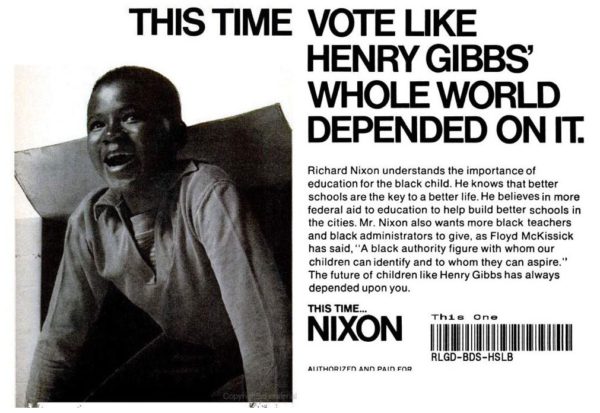Monthly Archives: August 2016
This post is conveniently timed precisely because – apart from recent events in Milwaukee – there hac not been a recent event to attach it to that I can be accused of trying to politically manipulate. It was written – but posted neither here nor on Ordinary Times – very shortly after the shooting in Orlando.
After just about any mass shooting, you start hearing dueling cries. The first says that we must put an end to this. The second says that we should not politicize tragedy.
Not politicizing tragedy is hard when the tragedy is tied very directly to government policy, which is a political question. Access to guns, such as which guns civilians should be able to possess and under what circumstances, is a question of government policy. This government should be influenced by the ramifications of the policy. Including tragedy. So it’s really not reasonable to suggest that such things cannot be politicized.
The question, though, is when it’s appropriate to do so. Proponents of gun control argue that mass shootings are so frequent that if we wait until a significant amount of time has passed, another one will have occurred. So “later” becomes “never.” This is true up to a point, but becomes troublesome when we’re talking about politicization in the immediate aftermath of what happened, before we even know what happened. Increasingly, this practice itself has been defended.
I do get the appeal. If you want to enact change, the best time to do so is in a (seemingly) favorable political environment. When it comes to mass shootings, that’s right after the shootings. That is when it becomes hardest for gun rights advocates to defend their position without seeming indifferent to the death and carnage that is consuming us all.
As someone that supports a robust right to gun ownership, I certainly feel that. In the aftermath of these shootings, I do start to waiver. I start to wonder what gun control measures we could enact that would prevent either this tragedy or ones like it. So it may seem weird, or disingenuous, for me to then object to you making a seemingly effective argument right at the point where it is having the most impact.
The problem is that the impetus for action does not begin and end with gun control. This week, Senate Democrats staged a filibuster to demand action on a specific element of gun control: The terrorist watch list. The argument goes that people accused of being terrorists should not be allowed to buy guns. In general, I am skeptical of this policy on due process grounds. I the aftermath of tragedy, though, I tend to have a more open mind. This may have prevented Orlando! This one little thing!
It’s a little thing unless you happen to be a Muslim that attends the wrong mosque, or has a cousin with some radical ideas. Or, horror of horror, some of your own ideas do not meet with FBI approval. In the aftermath of Orlando, though, I have an open mind on such things. Actually, I have an open mind about a lot of things related to Muslims. Maybe we need to watch them more closely. Maybe we need to be more aggressive in taking action and when someone calls the FBI about suspicious activity exhaust every alternative before concluding that the Muslim poses no threat.
This may sound bigoted. It may sound Islamophobic. It is, to some degree, both. In the light of day, I don’t like admitting that I have any of these thoughts. I don’t like admitting them here, but feel I need to in order to convey that some of the thoughts that we must Do Something actually lead to some unfortunate places. In my better judgment, I try to balance the needs of freedom and security towards more freedom for everybody including Muslims. I try not to let my fear get the better of me. I try not to be a bigot. Now, maybe for you, you don’t even have to try. Good for you. Most of the time, it’s not something that explicitly guides my thought process. After Orlando, it takes more effort. I’m willing to bet there are a lot more people like me than there are like you.
These thoughts come and go, with regard to guns, freedom, and Muslims. Time passes, and I remember why it was I already didn’t take the position I have suddenly been considering. Sometimes change does take root. I’m not made of stone. But most of the more sweeping thoughts I have don’t, and whether you’re a liberal or a conservative that’s probably a good thing.
To be clear, being anti-gun is not the same thing as being anti-Muslim. This is true regardless of your threat assessments. The first is an object, the second is a person. The arguments, however, are connected in one important way: Consciously or unconsciously, arguments are being made right now that seek specifically to exploit impaired judgment.
I am myself increasingly bowing out of such discussions. To some, this suggests a degree of heartlessness and indifference, to the point where any expression of sympathy or sadness is ipso facto disingenuous or worse. Or at least cowardly. But really, it’s because I know enough about myself to know that anger and sadness is not fertile ground for good decision-making. It’s not a good emotional or intellectual place to separate good arguments from bad. It’s a good place for emphatic reaction.
Politicians are going to politic. Activists are going to agitate. Pundits are going to pontificate. People I value and love will suggest that I am indifferent to bloodshed, if not responsible for it. It’s hard not to get hurt, be upset and to lash out, but I try to remember one thing: Sadness and anger impair judgment.
I watch these videos, which are just amazing, and I wonder what his blood pressure is.
Weekend vibes
pic.twitter.com/yoommltWc8— Comfortably Smug (@ComfortablySmug) August 13, 2016
ok we have reached peak alex jones. peak alex jones pic.twitter.com/0XkEbJlyDh
— ███.██ (@immolations) August 13, 2016
The line about wanting to have lots of children is odd because, as far as I know, he has none. (He apparently divorced last year. Much is being made of the fact that his wife was Jewish.)
El Chapo and the Secret History of the Heroin Crisis
Okay, I’m going to say it: The heroin epidemic was caused by the legalization of marijuana.
We wanted legal weed, and for the most part, we got it. Four states have legalized it outright, others have decriminalized it, and in many jurisdictions police refuse to enforce the laws that are on the books, creating a de facto street legalization. {…}
In a single year, the cartel suffered a 40 percent drop in marijuana sales, representing billions of dollars. Mexican marijuana became an almost worthless product. They’ve basically stopped growing the shit: Once-vast fields in Durango now lie fallow.
More good news, right?
Yeah, no. Guzmán and his boys are businessmen. They’re not going to take a forty-point hit and not do something about it. They had to make up those profits somewhere.
So, perhaps the solution is to ban the most harmless subject imaginable, play a lot of cat-and-mouse trying to keep that out, and keep the cartels busy with the harmless stuff so they don’t get to the most harmful stuff.
I’m not sure what we could pick.
Wait a second, I don’t like this plan at all.
So this week, Linkluster hit #500. That is the point after which I will, at minimum, stop numbering them or using numbers as a basis for their name. I’m not sure what I’m going to do going forward in that regard, if anything.
As the words “at minimum” and “if anything” indicate, I am going to be re-evaluating what precisely I am going to do. I have added a new Espresso section to the right, which I will use as a cross between Linkage and OTC. I am hoping to spur myself to be less formal and scheduled here than I have been. I’ve been trying to have something new up every weekday morning, leaning on Linkluster and crossposts to do so. Instead of that, I may start doing more posting-things-as-they-come. Linkluster may be broken down into more bite-size items in Espresso, unless you guys really like it where and how it is.
Espresso is going to be a cross between OTC and Linkage, using CK Macleod‘s great plug-in for the latter. Basically, it’s for things where I have a thought, or want to share something, but is not a formal post. Most likely. I will have to hammer out the criteria as I go. But the main gallery is likely to be reserved for what I want people to see when they come to the site, even if that means that it’s not going to have something new every day. As you come to the site and see nothing new there, check under Espresso.
Somewhat relatedly, if you are receiving email alerts and have been for a while, I recommend considering unsubscribing and resubscribing here. The difference is that traditionally subscriptions have involved all content, and as I do more posts that are a neat 18th century painting… well you may not want an email for that. I’ve still got work to do to exclude them from RSS feeds (or create alternate ones).
Your input is welcome (such as what format, if any, you might prefer Linkluster to be in).
Why Do So Many Men Whisper ‘Hey’ After Fucking You?
In search of the answer, I went to my one and only source for straight men—the staff of Deadspin, a sports blog that I’ve only read once. Unfortunately, I forgot that no one at that site has ever had sex before, so none of them knew what I was talking about.
Haha, this is funny because she’s insulting the sexuality of men that she doesn’t like.
Haha.
Skipping a pound of sodium on a lake. pic.twitter.com/99gmY9rdeV
— Chemical Reactions (@VideosOfScience) August 5, 2016
Updated to add:
Water on a magnesium fire pic.twitter.com/KNqw6ExVDb
— Physics & Chemistry (@VideosOfScience) August 5, 2016
Carl V Phillips has a really good piece on the concept of “Harm Reduction” as it applies to ecigarettes and everything else. He argues that ecigarette advocates have lost their way:
And yet, many people who fancy themselves supporters of tobacco harm reduction actively support most of those caused harms. They actively support punitive taxes on cigarettes, social opprobrium heaped on smokers, prohibitions against publicans being able to offer smoking sections, etc. Indeed, those individuals often celebrate or advocate for the caused harms because they create further incentives for the only aspect of harm reduction they actually support, switching products. It reminds me of the Orwellian themes of about half the anti-smoking propaganda I see these days: “Quit because it is so expensive and forces you to take breaks from hanging with your friends!” Um, yeah, and whose fault is that? It is the same as those messages of “if you smoke weed, you might lose your student financial aid and future employment prospects, so don’t go saying it is not bad for you!” Needless to say, you will never hear a peep of condemnation of this hypocritical “concern” for users’ well-being from the faux supporters of harm reduction.
The bottom line is simple: Anyone who supports punishing smokers does not actually believe in tobacco harm reduction. None of those “but for the greater good we need to…” protests changes this. Causing harm is not harm reduction.
I agree with Phillips on some things within the larger debate, and disagree with him on others, but his criticism here does strike close to home. The pro-vaping community is an odd bunch that includes a lot of different perspectives. Phillips is something of a lefty, Clive Bates is a Tory, Robert West is Labour, and so on. Some are public health advocates that primarily see the value of ecigarettes in terms of being better than smoking, while others see it more through the lens of freedom or at least balancing that freedom with health concerns. That latter distinction is important because it informs how cigarettes are viewed, which is the subject of a lot of debate.
For the most part, the vaping community has hung its hat on how the product is different from smoking, and therefore take an anti-smoking stance. The harms of cigarettes are important, therefore little effort is put into contextualizing that harm or questioning some of the more questionable claims of public health advocates as it pertains to the harms of smoking. It helps that a lot of vapers are former smokers and, such as myself, proud of being former smokers. And less benignly, we know that when it comes to political relationships smokers, tobacco companies, and smoking make for a pretty toxic alliance.
And yet the enemies of smoking have, at least in the US, become our enemies as well. The FDA only begrudgingly acknowledges any difference whatsoever between smoking and vaping and often actively seek to obfuscate any difference.
So whether we like it or not, and whether it’s convenient or not, there is some common cause there. And many of the underlying arguments are not entirely dissimilar. Ecigarettes are not harmless, so in the eyes of many it’s an open question of whether or not it should be allowed. Cigarettes are very harmful, but not to everybody and as Phillips points out the shaming itself, whether through government action or social mechanism, is itself a harm. I have a catalog of things the government does to smokers for little no other reason than that it causes harm, in hopes of getting them to quit. By causing harm I don’t just mean some of the harder-to-justify mechanisms of making smoking more difficult, but intentionally making cigarette packaging or cigarettes physically revolting. When public health advocates express a fear of ecigarettes “normalizing” smoking, they tend to support policies with the primary effect of abnormalizing it. Formalizing the disgust of the public.
Now, maybe that is good public policy in the end if the net gains from people not smoking outweigh the psychological and emotional harm done to smokers. Maybe penalizing smokers through taxes can be justified if it discourages smoking. But Phillips is right: It’s antithetical to the notion of harm reduction. And it becomes clearer that does more than just make an enemy of smoking. It makes an enemy of the smokers themselves.
When we did our taxes this past year, it looked like we were actually going to get a marginal refund. We weren’t really expecting it because half of the year one of my wife’s paychecks (she is paid by two institutions) wasn’t withholding any taxes. That’s usually a recipe to have to cut Uncle Sam a paycheck. So it was a pleasant surprise to find out that it almost evened out exactly. We’d owe the state a bit of money, but the feds would owe us.
Then we got that one last form: Debt forgiveness. We live in an underserved area, and so there is some loan forgiveness involved. The thing about loan forgiveness, though, is that it’s taxed as income.
Senate Democrats, however, are on it:
New loan forgiveness programs were supposed to make it easier for those students who were unable to pay, but a provision in the Tax Code can make a bad situation worse: the amount of the loan forgiveness is considered income for federal tax purposes. In other words, if your student loan debt of, say, $25,000, is written off, that same amount, $25,000, is treated as though you received cash in hand – and it’s taxed.
That tax treatment doesn’t just include student loans in default but also those that are discharged because of death or disability, or those with balances written off under federal income-based repayment (IBR) and income-contingent repayment (ICR) loan forgiveness programs.
Senators Bob Menendez (D-NJ) and Elizabeth Warren (D-MA) are hoping to change that. The pair, together with Ron Wyden (D-OR), Debbie Stabenow (D-MI) and Cory Booker (D-NJ) have introduced the Student Loan Tax Relief Act. The Act would exempt student loans discharged for any reason from being taxed as income.

Photo by Jay Tamboli 
What I mean is my first response is “Oh, yeah, now you do this! After we’ve already paid!” Except that we’re going to have to pay again next year, which should be the last year. But It’d almost be worth it to pay it next year just so that I can wave my cane at those deadbeats who aren’t paying their fair share.
Well, not really. The second “I don’t like it,” though is that I think we were right to have to pay it, and others whose debts are forgiven (or defaulted on) should have to pay it, too. Though obviously we are going to accept it as it comes, I think compensation through this mechanism is generally not a good idea. It’s often scheduled in such a way as to give recipients false hope. It’s the compensation equivalent to mail-in rebates. The fact that a lot of people who think they’re going to be getting it don’t get it is built in to the whole scheme.
It’s also economically inefficient. We would have paid off our debt by now if it weren’t for this program and ones like it. We are structuring how we tackle our debts in part in response to this program, and that strikes me as a net loss. Better we have a program to simply give physicians in underserved areas a paycheck boost.
Granted, we are not who the senators have in mind anyway. They are mostly interested in helping out those who default on their loans. I guess I have some sympathy for them and this is the government itself taking a haircut and that’s better than demanding that creditors do. Offering it to people like us is mostly a way of making it seem like it’s not about the defaulters, and maybe getting some upper class support. Which, to be fair, I don’t mind benefiting from.
 Government ruins everything.
Government ruins everything.
Maybe I ought not be so critical of the police.
You know, if some people spent as much time, energy, and ingenuity earnin’ as they do scammin’ and thievin’, they’d be in a lot better shape.
You do your think, Creepy Clown.
Here’s an interesting look inside at Facebook’s thought processes in confronting clickbait.
 Student protests may be hitting their university bank accounts, as alumni donors feel alienated.
Student protests may be hitting their university bank accounts, as alumni donors feel alienated.
Wight ghettos are the worst.
It’s raining bibles in Daeshian Iraq.
Wow, this Damon Linker piece on Angela Merkel is just brutal.
This reminds me of our dog Lisby, wanting nothing to do with my wife when she was pregnant with Lain but not responding to when she was pregnant with Marvin.
Well, babies certainly are manipulative. Starting before they are born.
 Hillary Clinton doesn’t sweat. That seems like a design error, though, because sweating is actually really important.
Hillary Clinton doesn’t sweat. That seems like a design error, though, because sweating is actually really important.
It looks like it’s finally starting to happen. The groundwork is being laid for superhero and supervillain origins.
It may have been critical humanity’s advance and a pillar to civilization, but I’m sorry to tell you that fire is problematic.
This really was a weird thing. I commented on it a while back. I do feel sorry for those parents whose kids actually do say precocious things, because a lot of people probably don’t believe them.


